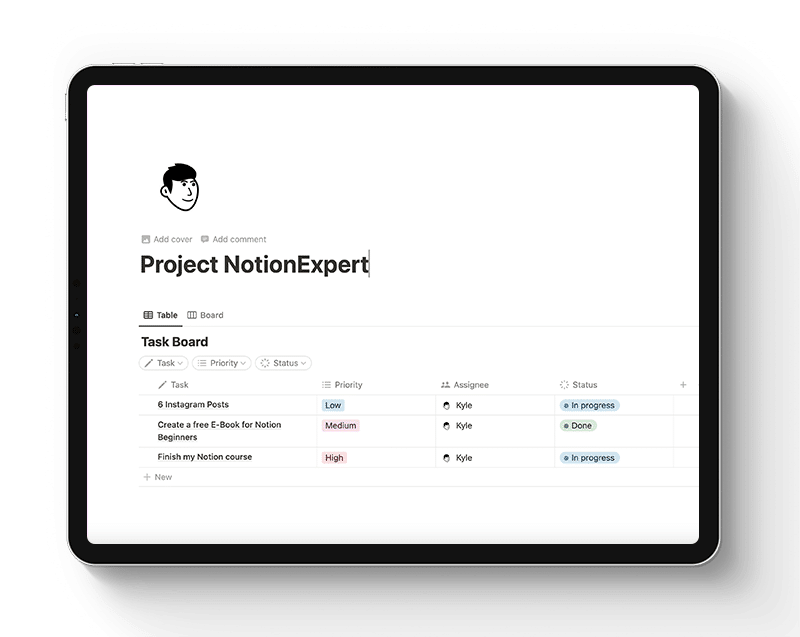In the ever-evolving landscape of project management tools, selecting the ideal software can be a daunting task. Today, we delve into the world of Notion and Asana, two powerhouses that have transformed the way teams collaborate and deliver projects.
THE QUICK ANSWER: Notion is best for document and project management, while Asana excels in automation and creative suite integration.
Project Management
Notion
Notion’s project management functionality allows teams to structure projects as comprehensive databases, with the flexibility to define specific properties such as assignees, reviewers, dates, and more. The dynamic views available, such as tables, Kanban boards, calendars, or timelines, provide a holistic perspective of project progress.
Interestingly, Notion introduces a gallery view, a unique feature that presents each row of a database as a card, reminiscent of a digital bulletin board.
Notion Templates
If you’re struggling to get started with Notion, check out our range of both Free and Premium Notion Templates.

Asana
Asana, like Notion, offers a robust project management setup. It allows for the creation of project databases and the assignment of numerous properties to tasks, facilitating efficient project management.
Seamless Integration
Both Notion and Asana provide seamless integration with a plethora of workspace apps, ensuring that all tasks can be linked and managed from a single platform. Furthermore, both platforms provide automation capabilities through Zapier and IFTTT, enabling users to automate common steps and streamline their workflows.
Communication and Collaboration
Effective collaboration and communication are fundamental for any project’s success, and both Notion and Asana shine in this regard. Users can communicate with team members within both apps, using the ‘@’ mention in threaded comments.
Data Management Prowess
Utilizing the same databases for data management as for project management, both Notion and Asana ensure that information remains organized, allowing users to create unlimited customized and filtered views to visualize data and create dashboards.
Information Infrastructure
Notion
Notion offers a unique approach by combining document creation and management with project and data management. This means you can create and organize documents associated with projects and databases directly within Notion, without the need for linking to third-party documentation.
Asana
Asana, on the other hand, integrates effectively with creative suites, such as Google Drive and Microsoft Office 365, allowing for easy linking to external documents and helping keep information organized within your Asana databases.
Creative Collaboration
Both Asana and Notion enable creative collaboration through their project management features. Notion’s pages allow for even more collaboration within the tool, similar to Google Docs or Microsoft Word. However, Notion’s word processing features do not offer an in-app spell checker, word counter, or the ability to track changes.
File Storage
While neither Notion nor Asana offers file storage as robust as Google Drive, OneDrive, or Dropbox, both provide unlimited file uploads, which can be organized using their complex databases.
Notion’s File Storage
Notion offers unlimited file uploads for all accounts, with individual file sizes limited to 5MB for free accounts. For paid accounts, although there is no official limit, it is recommended to limit file sizes to 2-3GB for successful uploads.
Asana’s File Storage
Asana, on the other hand, provides unlimited file uploads for all accounts, with a uniform individual file size limit of 100MB.
Automation
Asana takes the lead in native automation functionality, although Notion is not far behind, with its 2021 acquisition of integration software Automate.io.
Asana allows you to set custom rules to automate common steps in your project management processes, such as routing tasks to the correct projects, assigning tasks to the right team members, and more.
My Conclusion on Notion vs Asana
The choice between Notion and Asana ultimately depends on your team’s specific needs. If you’re looking for a tool that blends document creation and management with project and data management, Notion might be the right choice for you. However, if you require superior native automation functionality and integration with creative suites, Asana could be your ideal tool.
